Africa · Australia · Colorado · Ecuador · Health & Safety · Kenya · Montana · Namibia · North America · Oceania · Regions · South America · Travel Miscellany · USA · Wyoming
Coronavirus fears? Head to the wilderness
Coronavirus is on everyone’s mind right now – understandably so. We need to be sensible and treat it with respect. But you still want to travel, yes? Help is at hand.
One solution for you is to head to the wilderness – areas of sparse populations are perfect for exploring and staying virus-free. Here are the top 5 wilderness destinations where you can enjoy a luxury adventure – and even make a difference while you are there:
5. Namibia
Namibia is one of the least densely populated countries in the world, with just 3.13 people per square kilometer, 2nd only to Mongolia.
 This desert country hosts some incredible lodges, such as Sossusvlei Desert Lodge, Little Kulala and Desert Rhino Camp – all far from the madding crowd.
What’s more, you can play a part to reduce elephant-human conflict in the southern Kunene region of Namibia. You get to help construct protection walls around water points, or dig new water sources for elephants away from human settlements. You also get to spend a fabulous day tracking the desert elephants in the wilderness.
You get to learn all about the desert elephants and witness them roaming in their habitat with highly knowledgeable, fantastic guides.
Get started on the construction early to beat the Namibian heat and then stop around 12 to travel back to camp for a traditional African siesta and lunch. In the afternoons you start after 2:30 pm and work for a couple of hours before heading back to camp in time for the obligatory sundowner. Evenings are spent relaxing around the campfire, listening to the sounds of Africa.
Building walls is sweaty and you work as a team to complete an incredibly satisfying project.
4. Australia
Outside of the cities such as Sydney and Melbourne fringing the coast, Australia is mostly desert, and in the aftermath of the bushfires, needs your visit more than ever.
This desert country hosts some incredible lodges, such as Sossusvlei Desert Lodge, Little Kulala and Desert Rhino Camp – all far from the madding crowd.
What’s more, you can play a part to reduce elephant-human conflict in the southern Kunene region of Namibia. You get to help construct protection walls around water points, or dig new water sources for elephants away from human settlements. You also get to spend a fabulous day tracking the desert elephants in the wilderness.
You get to learn all about the desert elephants and witness them roaming in their habitat with highly knowledgeable, fantastic guides.
Get started on the construction early to beat the Namibian heat and then stop around 12 to travel back to camp for a traditional African siesta and lunch. In the afternoons you start after 2:30 pm and work for a couple of hours before heading back to camp in time for the obligatory sundowner. Evenings are spent relaxing around the campfire, listening to the sounds of Africa.
Building walls is sweaty and you work as a team to complete an incredibly satisfying project.
4. Australia
Outside of the cities such as Sydney and Melbourne fringing the coast, Australia is mostly desert, and in the aftermath of the bushfires, needs your visit more than ever.
 Head to the Outback and immerse yourself in the Aboriginal culture: diverse, with a multitude of languages and disparate customs.
And here’s how you can leave a legacy:
Whilst Aboriginal art has captured the world’s attention, the preservation of the artistic talents and culture in general remains under threat, especially when employment opportunities in rural communities are scarce. Becoming an artist is one way of earning a viable income and remaining part of an Aboriginal community, and can even make the culture more vibrant and sustainable.
You get to fund the scholarship of a promising Aboriginal arts student and in return, whilst in the Northern Territory, in sight of Uluru, you get an exclusive encounter with an established Aboriginal artist, from whom you can commission your own unique work of art (we will arrange the shopping of this to your home).
Or head to another wilderness: Tasmania, where amazing hikes and gourmet dining opportunities abound. Moreover, you can spend two days with an acclaimed wildlife expert & naturalist who will guide you around neighbouring Maria Island. Enjoy a fascinating insight into the lives of the endangered Tasmanian Devil. Sightings are not guaranteed but Maria Island offers the best chance.
Tasmanian Devils suffer from a facial tumor that kills all infected Devils, and your donation of $5,000 to the Save the Tasmanian Devil Program will assist in further research to combat this deadly contagion.
Fortunately, the Tasmanian Devils on Maria Island are not infected with the disease.
In addition to the Tasmanian Devil, on Maria Island various rare and unusual birds and animals inhabit this remarkable “Noah’s Ark” island sanctuary including wombats, pademelons, kangaroos and wallabies.
The Blue Mountains are another incredible wilderness region in this vast country. Stay at the sensational One & Only Wolgan Valley and while you are there, you can make a difference conserving some of Australia’s most iconic wildlife:
Head to the Outback and immerse yourself in the Aboriginal culture: diverse, with a multitude of languages and disparate customs.
And here’s how you can leave a legacy:
Whilst Aboriginal art has captured the world’s attention, the preservation of the artistic talents and culture in general remains under threat, especially when employment opportunities in rural communities are scarce. Becoming an artist is one way of earning a viable income and remaining part of an Aboriginal community, and can even make the culture more vibrant and sustainable.
You get to fund the scholarship of a promising Aboriginal arts student and in return, whilst in the Northern Territory, in sight of Uluru, you get an exclusive encounter with an established Aboriginal artist, from whom you can commission your own unique work of art (we will arrange the shopping of this to your home).
Or head to another wilderness: Tasmania, where amazing hikes and gourmet dining opportunities abound. Moreover, you can spend two days with an acclaimed wildlife expert & naturalist who will guide you around neighbouring Maria Island. Enjoy a fascinating insight into the lives of the endangered Tasmanian Devil. Sightings are not guaranteed but Maria Island offers the best chance.
Tasmanian Devils suffer from a facial tumor that kills all infected Devils, and your donation of $5,000 to the Save the Tasmanian Devil Program will assist in further research to combat this deadly contagion.
Fortunately, the Tasmanian Devils on Maria Island are not infected with the disease.
In addition to the Tasmanian Devil, on Maria Island various rare and unusual birds and animals inhabit this remarkable “Noah’s Ark” island sanctuary including wombats, pademelons, kangaroos and wallabies.
The Blue Mountains are another incredible wilderness region in this vast country. Stay at the sensational One & Only Wolgan Valley and while you are there, you can make a difference conserving some of Australia’s most iconic wildlife:
 Back in the Masai Mara, you can stay on a private conservancy at Cottar’s 1920’s camp, encounter hardly any other people, and in addition to spectacular wildlife sightings led by Africa’s finest guides, help install eco-friendly stoves in village homes. So you get to make lives healthier while staying healthy yourself.
2. Galapagos Islands
Perhaps cruises are not on your radar right now after the Diamond Princess fiasco, but the good news is that in the Galapagos Islands:
Back in the Masai Mara, you can stay on a private conservancy at Cottar’s 1920’s camp, encounter hardly any other people, and in addition to spectacular wildlife sightings led by Africa’s finest guides, help install eco-friendly stoves in village homes. So you get to make lives healthier while staying healthy yourself.
2. Galapagos Islands
Perhaps cruises are not on your radar right now after the Diamond Princess fiasco, but the good news is that in the Galapagos Islands:
 And while you are there, you can get exclusive access to parts of the National Park normally off-limits to foreigners and help with removing invasive species. Leave the islands a better place. Awesome for families.
1. Montana, Wyoming and Colorado
These states are amongst the least densely populated in the US, and all have spectacular, raw, wild scenery to beguile you. One population that needs to increase are wolves. As demonstrated in Yellowstone National Park, when this apex predator was reintroduced in the Park, the whole ecosystem flourished.
And while you are there, you can get exclusive access to parts of the National Park normally off-limits to foreigners and help with removing invasive species. Leave the islands a better place. Awesome for families.
1. Montana, Wyoming and Colorado
These states are amongst the least densely populated in the US, and all have spectacular, raw, wild scenery to beguile you. One population that needs to increase are wolves. As demonstrated in Yellowstone National Park, when this apex predator was reintroduced in the Park, the whole ecosystem flourished.
 Sadly their viability is in crisis.
A vital step in securing wolves’ future is the creation of a wolf corridor to allow wolves to move freely from Mexico to Canada. This is in fact almost complete, with one missing link: Colorado.
Since the 1940s, when Colorado’s last wolf was killed, its ecosystem has suffered. A lack of natural balance means that too many elk and deer eat away the vegetation that holds streams and rivers back, leading to erosion and the disruption of even more habitats, like those for native beavers and songbirds. Wolves also naturally limit the spread of disease, such as Chronic Wasting Disease (CWD), by taking vulnerable animals out of the population.
This summer 2020 is the crucial time when you can go on a trip and your philanthropic donation will help secure the legislation needed to enable the Colorado corridor to become a reality.
Christopher Hill is Founder and CEO at Hands Up Holidays. Hands Up Holidays is an award-winning travel company specialising in tailor-made luxury family trips that combine sightseeing with hands-on service projects.
If you would like to be a guest blogger on A Luxury Travel Blog in order to raise your profile, please contact us.
Sadly their viability is in crisis.
A vital step in securing wolves’ future is the creation of a wolf corridor to allow wolves to move freely from Mexico to Canada. This is in fact almost complete, with one missing link: Colorado.
Since the 1940s, when Colorado’s last wolf was killed, its ecosystem has suffered. A lack of natural balance means that too many elk and deer eat away the vegetation that holds streams and rivers back, leading to erosion and the disruption of even more habitats, like those for native beavers and songbirds. Wolves also naturally limit the spread of disease, such as Chronic Wasting Disease (CWD), by taking vulnerable animals out of the population.
This summer 2020 is the crucial time when you can go on a trip and your philanthropic donation will help secure the legislation needed to enable the Colorado corridor to become a reality.
Christopher Hill is Founder and CEO at Hands Up Holidays. Hands Up Holidays is an award-winning travel company specialising in tailor-made luxury family trips that combine sightseeing with hands-on service projects.
If you would like to be a guest blogger on A Luxury Travel Blog in order to raise your profile, please contact us.
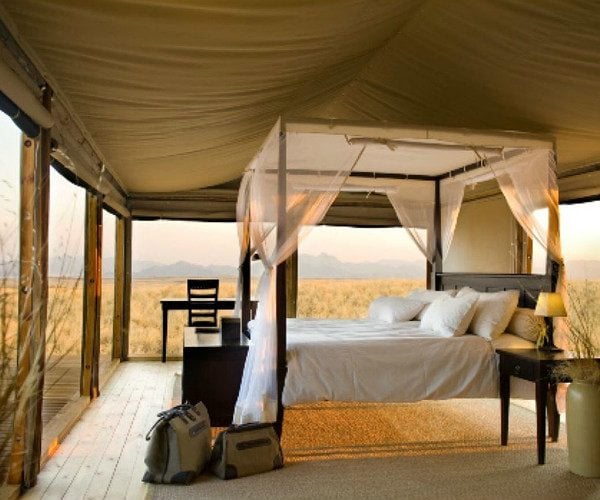 This desert country hosts some incredible lodges, such as Sossusvlei Desert Lodge, Little Kulala and Desert Rhino Camp – all far from the madding crowd.
What’s more, you can play a part to reduce elephant-human conflict in the southern Kunene region of Namibia. You get to help construct protection walls around water points, or dig new water sources for elephants away from human settlements. You also get to spend a fabulous day tracking the desert elephants in the wilderness.
You get to learn all about the desert elephants and witness them roaming in their habitat with highly knowledgeable, fantastic guides.
Get started on the construction early to beat the Namibian heat and then stop around 12 to travel back to camp for a traditional African siesta and lunch. In the afternoons you start after 2:30 pm and work for a couple of hours before heading back to camp in time for the obligatory sundowner. Evenings are spent relaxing around the campfire, listening to the sounds of Africa.
Building walls is sweaty and you work as a team to complete an incredibly satisfying project.
4. Australia
Outside of the cities such as Sydney and Melbourne fringing the coast, Australia is mostly desert, and in the aftermath of the bushfires, needs your visit more than ever.
This desert country hosts some incredible lodges, such as Sossusvlei Desert Lodge, Little Kulala and Desert Rhino Camp – all far from the madding crowd.
What’s more, you can play a part to reduce elephant-human conflict in the southern Kunene region of Namibia. You get to help construct protection walls around water points, or dig new water sources for elephants away from human settlements. You also get to spend a fabulous day tracking the desert elephants in the wilderness.
You get to learn all about the desert elephants and witness them roaming in their habitat with highly knowledgeable, fantastic guides.
Get started on the construction early to beat the Namibian heat and then stop around 12 to travel back to camp for a traditional African siesta and lunch. In the afternoons you start after 2:30 pm and work for a couple of hours before heading back to camp in time for the obligatory sundowner. Evenings are spent relaxing around the campfire, listening to the sounds of Africa.
Building walls is sweaty and you work as a team to complete an incredibly satisfying project.
4. Australia
Outside of the cities such as Sydney and Melbourne fringing the coast, Australia is mostly desert, and in the aftermath of the bushfires, needs your visit more than ever.
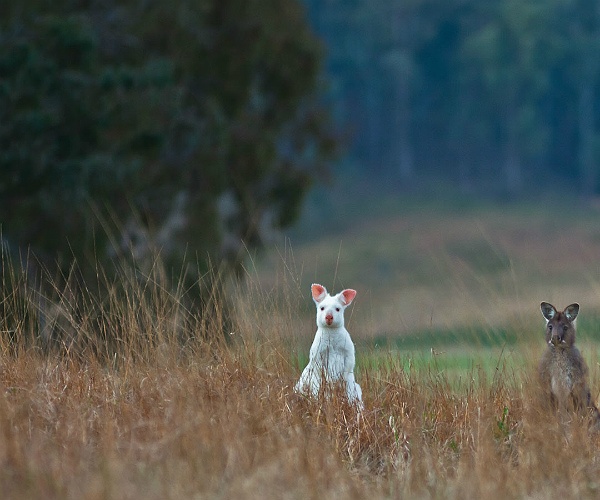 Head to the Outback and immerse yourself in the Aboriginal culture: diverse, with a multitude of languages and disparate customs.
And here’s how you can leave a legacy:
Whilst Aboriginal art has captured the world’s attention, the preservation of the artistic talents and culture in general remains under threat, especially when employment opportunities in rural communities are scarce. Becoming an artist is one way of earning a viable income and remaining part of an Aboriginal community, and can even make the culture more vibrant and sustainable.
You get to fund the scholarship of a promising Aboriginal arts student and in return, whilst in the Northern Territory, in sight of Uluru, you get an exclusive encounter with an established Aboriginal artist, from whom you can commission your own unique work of art (we will arrange the shopping of this to your home).
Or head to another wilderness: Tasmania, where amazing hikes and gourmet dining opportunities abound. Moreover, you can spend two days with an acclaimed wildlife expert & naturalist who will guide you around neighbouring Maria Island. Enjoy a fascinating insight into the lives of the endangered Tasmanian Devil. Sightings are not guaranteed but Maria Island offers the best chance.
Tasmanian Devils suffer from a facial tumor that kills all infected Devils, and your donation of $5,000 to the Save the Tasmanian Devil Program will assist in further research to combat this deadly contagion.
Fortunately, the Tasmanian Devils on Maria Island are not infected with the disease.
In addition to the Tasmanian Devil, on Maria Island various rare and unusual birds and animals inhabit this remarkable “Noah’s Ark” island sanctuary including wombats, pademelons, kangaroos and wallabies.
The Blue Mountains are another incredible wilderness region in this vast country. Stay at the sensational One & Only Wolgan Valley and while you are there, you can make a difference conserving some of Australia’s most iconic wildlife:
Head to the Outback and immerse yourself in the Aboriginal culture: diverse, with a multitude of languages and disparate customs.
And here’s how you can leave a legacy:
Whilst Aboriginal art has captured the world’s attention, the preservation of the artistic talents and culture in general remains under threat, especially when employment opportunities in rural communities are scarce. Becoming an artist is one way of earning a viable income and remaining part of an Aboriginal community, and can even make the culture more vibrant and sustainable.
You get to fund the scholarship of a promising Aboriginal arts student and in return, whilst in the Northern Territory, in sight of Uluru, you get an exclusive encounter with an established Aboriginal artist, from whom you can commission your own unique work of art (we will arrange the shopping of this to your home).
Or head to another wilderness: Tasmania, where amazing hikes and gourmet dining opportunities abound. Moreover, you can spend two days with an acclaimed wildlife expert & naturalist who will guide you around neighbouring Maria Island. Enjoy a fascinating insight into the lives of the endangered Tasmanian Devil. Sightings are not guaranteed but Maria Island offers the best chance.
Tasmanian Devils suffer from a facial tumor that kills all infected Devils, and your donation of $5,000 to the Save the Tasmanian Devil Program will assist in further research to combat this deadly contagion.
Fortunately, the Tasmanian Devils on Maria Island are not infected with the disease.
In addition to the Tasmanian Devil, on Maria Island various rare and unusual birds and animals inhabit this remarkable “Noah’s Ark” island sanctuary including wombats, pademelons, kangaroos and wallabies.
The Blue Mountains are another incredible wilderness region in this vast country. Stay at the sensational One & Only Wolgan Valley and while you are there, you can make a difference conserving some of Australia’s most iconic wildlife:
- Helping with animal counting (Wombats, Kangaroos, Wallabies and Wallaroos)
- Planting native trees
- Weeding tree areas, irrigating and testing water quality for the animals to safely drink
- Regenerating and rebuilding eroded areas along river beds
- Helping university research teams
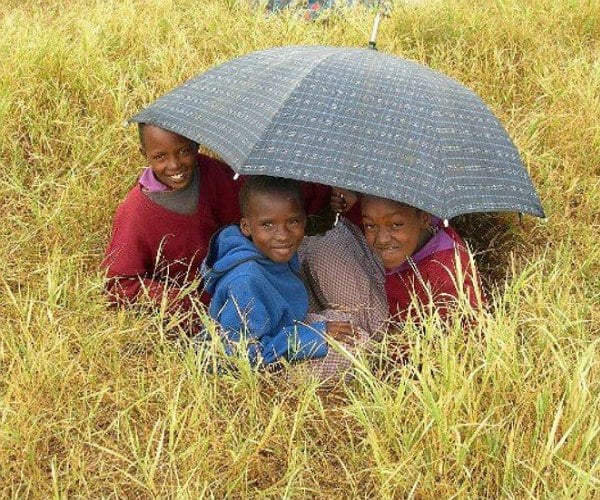 Back in the Masai Mara, you can stay on a private conservancy at Cottar’s 1920’s camp, encounter hardly any other people, and in addition to spectacular wildlife sightings led by Africa’s finest guides, help install eco-friendly stoves in village homes. So you get to make lives healthier while staying healthy yourself.
2. Galapagos Islands
Perhaps cruises are not on your radar right now after the Diamond Princess fiasco, but the good news is that in the Galapagos Islands:
Back in the Masai Mara, you can stay on a private conservancy at Cottar’s 1920’s camp, encounter hardly any other people, and in addition to spectacular wildlife sightings led by Africa’s finest guides, help install eco-friendly stoves in village homes. So you get to make lives healthier while staying healthy yourself.
2. Galapagos Islands
Perhaps cruises are not on your radar right now after the Diamond Princess fiasco, but the good news is that in the Galapagos Islands:
- Boats are MUCH smaller – even the biggest carry 100 passengers and the small ones around 20 guests
- You don’t have to go on a cruise – you can base yourself on one of the islands at a superb camp or lodge, such as Pikaia Lodge or Galapagos Safari Camp
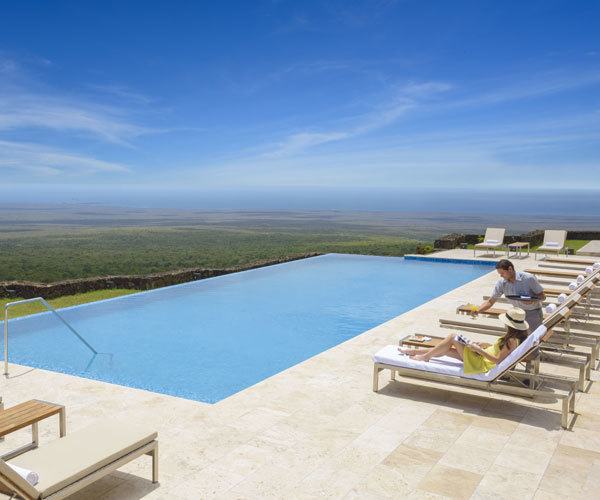 And while you are there, you can get exclusive access to parts of the National Park normally off-limits to foreigners and help with removing invasive species. Leave the islands a better place. Awesome for families.
1. Montana, Wyoming and Colorado
These states are amongst the least densely populated in the US, and all have spectacular, raw, wild scenery to beguile you. One population that needs to increase are wolves. As demonstrated in Yellowstone National Park, when this apex predator was reintroduced in the Park, the whole ecosystem flourished.
And while you are there, you can get exclusive access to parts of the National Park normally off-limits to foreigners and help with removing invasive species. Leave the islands a better place. Awesome for families.
1. Montana, Wyoming and Colorado
These states are amongst the least densely populated in the US, and all have spectacular, raw, wild scenery to beguile you. One population that needs to increase are wolves. As demonstrated in Yellowstone National Park, when this apex predator was reintroduced in the Park, the whole ecosystem flourished.
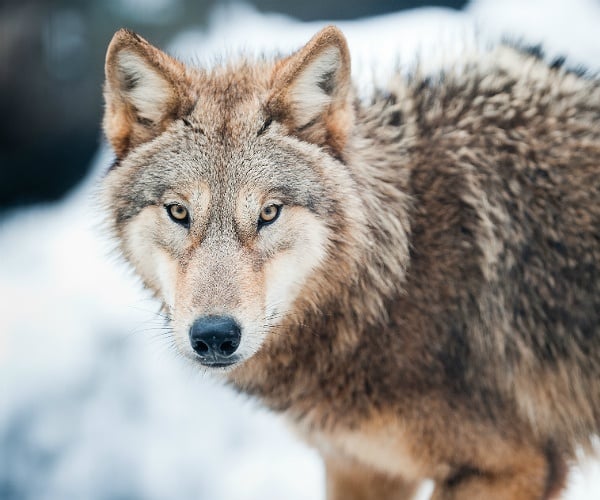 Sadly their viability is in crisis.
A vital step in securing wolves’ future is the creation of a wolf corridor to allow wolves to move freely from Mexico to Canada. This is in fact almost complete, with one missing link: Colorado.
Since the 1940s, when Colorado’s last wolf was killed, its ecosystem has suffered. A lack of natural balance means that too many elk and deer eat away the vegetation that holds streams and rivers back, leading to erosion and the disruption of even more habitats, like those for native beavers and songbirds. Wolves also naturally limit the spread of disease, such as Chronic Wasting Disease (CWD), by taking vulnerable animals out of the population.
This summer 2020 is the crucial time when you can go on a trip and your philanthropic donation will help secure the legislation needed to enable the Colorado corridor to become a reality.
Christopher Hill is Founder and CEO at Hands Up Holidays. Hands Up Holidays is an award-winning travel company specialising in tailor-made luxury family trips that combine sightseeing with hands-on service projects.
If you would like to be a guest blogger on A Luxury Travel Blog in order to raise your profile, please contact us.
Sadly their viability is in crisis.
A vital step in securing wolves’ future is the creation of a wolf corridor to allow wolves to move freely from Mexico to Canada. This is in fact almost complete, with one missing link: Colorado.
Since the 1940s, when Colorado’s last wolf was killed, its ecosystem has suffered. A lack of natural balance means that too many elk and deer eat away the vegetation that holds streams and rivers back, leading to erosion and the disruption of even more habitats, like those for native beavers and songbirds. Wolves also naturally limit the spread of disease, such as Chronic Wasting Disease (CWD), by taking vulnerable animals out of the population.
This summer 2020 is the crucial time when you can go on a trip and your philanthropic donation will help secure the legislation needed to enable the Colorado corridor to become a reality.
Christopher Hill is Founder and CEO at Hands Up Holidays. Hands Up Holidays is an award-winning travel company specialising in tailor-made luxury family trips that combine sightseeing with hands-on service projects.
If you would like to be a guest blogger on A Luxury Travel Blog in order to raise your profile, please contact us.Did you enjoy this article?
Receive similar content direct to your inbox.


I think that for the moment any travel plans are on the back burner though I learnt something usual from reading this post. The idea of the Galapagos has sort of appealed to, though as a someone who can’t swim I usually feel less than safe on boats. I don’t really think that I’m a cruise sort of person either. It ways a real education for me to learn about Palais Lodge and the Galapagos Safari Camp. One of those could be the perfect Galápagos compromise for me.
Hi Karen,
Yes, you are not alone in thinking that you have to go on a cruise in order to experience the Galapagos Islands – I named my two favourite hotels; there are quite a lot more too!
Thank you so much for naming Galapagos Safari Camp as one of your favourite hotels Christopher, it’s much appreciated! Karen, unlike many tours in the Galapagos, our land-based Safaris can be fully customised, and so we can create an itinerary according to your needs and with activities you feel safe and comfortable doing. You can still see lots of wildlife without having to be on a boat, although we do recommend one or two day trips to neighboring islands if you feel up to it. You can also extend your stay by taking a hopper plane (instead of a boat) to Isabela Island, and like Santa Cruz, there is plenty to see and do on land there, including walking to the stunning volcanic crater of Sierra Negra and exploring the coastal wetlands on foot or bicycle, which are home to many iconic Galapagos species. In short, there are many options of exploring the Galapagos without having to take a cruise. I hope this helps.
As at present we are living in fear of Corona. Your post is really helpful for people who wants to get rid of the fear and travel to far off places. Thanks for the helpful post.
You are right John. Fear has its own contagion effect which can be more damaging than the virus itself.
I think a lot of people have stopped booking travel at the moment. Talking to my friends it’s not the Covid-19 that worries them it’s the problem of quarantine. We’ve seen people spend time on a ship or in a hotel and then get to Britain only to be banged up in quarantine again. I can’t see that going down too well with my employers.
Anyway what I was really going to say is that there’s going to be a lot of armchair travelling going on over the next few months. A lot of us are going to be ready and watching online clips to decide where we really want to go once the crisis is over.
I was going to do a big trip at Easter but haven’t booked anything now. I have a travel budget so that will get rolled over into my next trip – that’s going to be a real biggie.
Thanks James,
Excellent point about quarantine – that could be a deal breaker for some, for sure.
Where do you think you will go for your biggie?
I like the look of a top class safari – somewhere like Botswana or Namibia. Have to wait and see though. I spend so much time on travel websites and blogs that by the time the world’s sorted out the virus I might have found somewhere else that’s attracted my attention.
I think part of the concern now is using public transport and getting on planes, but I think being sensible means it shouldn’t let it stop you travelling, just don’t get super close to others and maintain good hygiene. I do like the idea of being out in the wilderness generally though. I find it more appealing as time goes on, probably because of getting fed up of city life and the constant noise and stress. I think getting back to nature and having a ‘digital detox’ too are becoming more sought after by a lot of folks these days. I’ll be honest, I hadn’t thought of Namibia for a holiday before. I’d love to feel useful and part of something important though with helping the elephants in some way, that would be amazing.
You’ve listed some great suggestions for ways to make your stay more meaningful by giving back and making a difference. There are lots of different ways to do that in Australia that I wouldn’t have thought of.
Hi Marissa, Namibia is incredible – but don’t tell too many people! – with breathtaking sand dunes, superb wildlife viewing, rugged coastline, and a rich nomadic culture.
You will love it, especially when you get involved conserving the desert elephants.
I really like the idea of the Little Kuala Camp in Namibia and doing something to give back to their community there. I’m just wondering what the best way to get there is, with a flight to the capital? And then what?
Hi Bryan,
You will love it!
You would fly into Windhoek and then can either fly or drive/be driven (5 hours) to Little Kulala.
There’s not much to see on the road so I recommend flying.
I’ve never been more restless than I am right now and certainly wishing that I live somewhere remote (but not isolated). I feel that being somewhere like the wilderness is safer. I can enjoy the outdoors without fear of coming across another person and just revelling in nature. It really gives you some perspective about how much you miss everything you are used to. Makes me want to rethink more about the future and about maybe having a home somewhere less crowded.
Yes, the virus is hopefully going to have some positive impacts, giving us opportunity to think about what is truly important, and perhaps letting go of those things that really don’t matter.